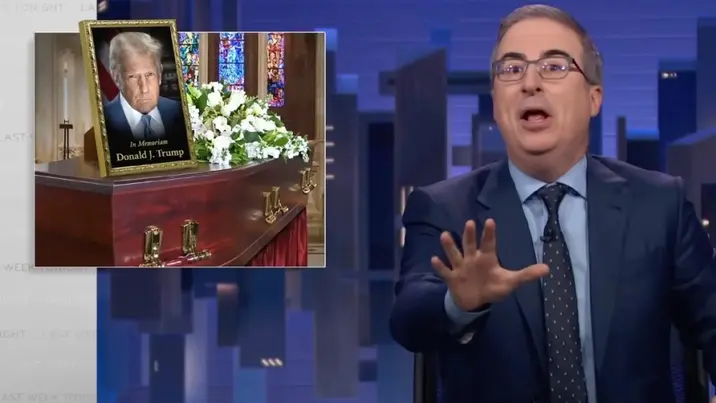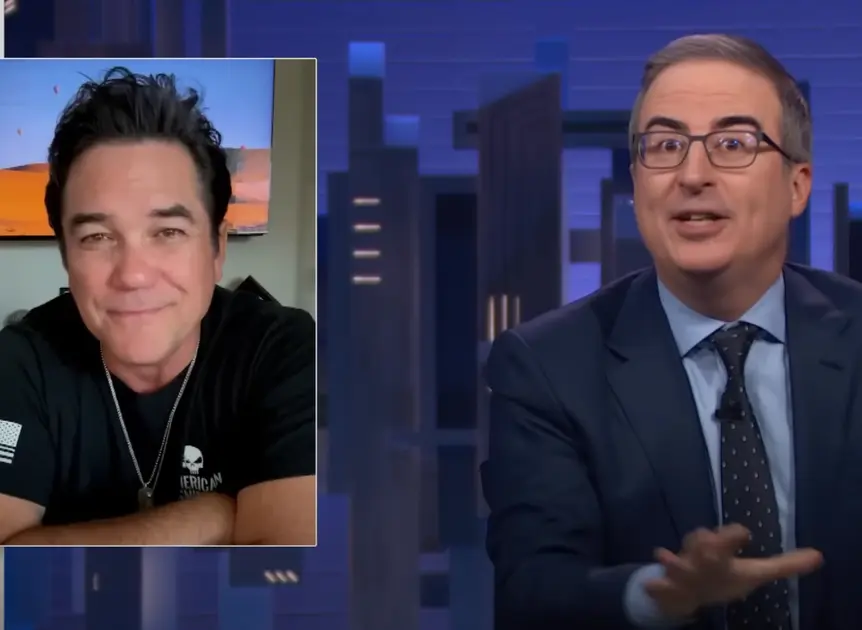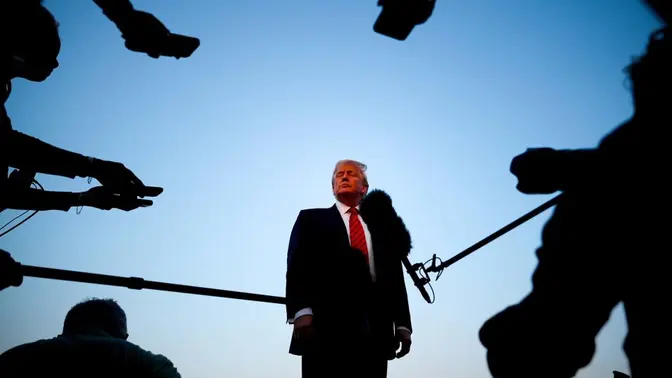T4K3.news
Oliver Turns Trump Funeral Moment into a Sharp Take on Immigration Policy
John Oliver critiques White House immigration posts and a DHS video, turning a political moment into a broader discussion on public messaging.

John Oliver uses a late night segment to critique the White House immigration posts, turning a grim moment into a broader look at political messaging.
Oliver Turns Trump Funeral Moment into a Sharp Take on Immigration Policy
John Oliver’s Sunday segment on Last Week Tonight targetted the White House’s immigration enforcement videos. He highlighted memes of Trump officials as South Park characters and the use of the song Na Na Hey Hey Kiss Him Goodbye to celebrate detentions, calling the posts a low point in official social media. He also mocked a regional Border Patrol video that used Darth Vader imagery to frame agencies as heroes, drawing a sharp line between entertainment and reality. The Department of Homeland Security later replied to a press inquiry, defending the Vader reference and arguing that the character’s backstory mattered for context.
Key Takeaways
"Look, we all know this but sometimes it is worth reiterating that this White House is full of the pettiest little bitches imaginable"
Oliver opens with a pointed critique of White House social posts
"OK, if I may quote an insufferable man on a first Bumble date, have you ever seen Star Wars"
Oliver comments on the Vader meme and its use by officials
"I’d honestly love to know their disingenuous takes on other movie villains"
Oliver questions the DHS defense to a query
"Vader used to be Anakin Skywalker"
DHS defense cited the Vader character’s backstory in response
The piece shows how satire now lives in the social media era as a key form of public accountability. Satire can expose moral bankruptcy more effectively than headlines, but it also risks deepening rancor if audiences read it as partisan theater. Oliver’s jokes illuminate a gap between policy actions and their public framing, prompting readers to question who controls the narrative and which voices carry the most weight online. In a climate where official messaging is increasingly viral, humor becomes a tool that can shape perception as much as policy. The risk is that satire polarizes further while leaving real policy debates underexplored.
Highlights
- You can throw a Bluetooth speaker pretty far
- Satire can punch holes in the bravado of a political feed
- Disingenuous takes on villains are not a policy plan
- Humor exposes truths hidden in plain sight
Political and sensitive content risk
The piece engages with a high stakes political topic and a government agency, which can provoke backlash and polarization. It uses satire to critique official messaging, potentially widening audience divides.
Humor will keep testing the boundaries of political debate as audiences weigh content and consequence.
Enjoyed this? Let your friends know!
Related News

Dean Cain defends ICE move after Oliver’s mockery

Celeb plan to join ICE prompts satire

Trump policy wins met with looming backlash

Oscar Night Packed with Humor and Controversy

Venezuelan Men Share Abuse Stories Post Deportation

Leguizamo Attacks Cain on ICE Plan

Trump's Impact Shakes Democratic Foundations
